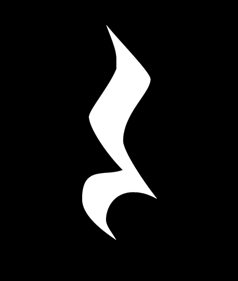1963
Claudia Summers
“Harlem, New York 1963.” Gordon Parks.
I hear the rushing-hum of sporadic car wheels on concrete, the buckling thunder of steel plates under their wheels. I hear the fluttering of the green ash; whose leaves I imagine touching, rough and slightly waxy—If only I could reach further. I hear trills and bursts of choppy melody. Sparrows. Singing. Conversing. Fighting. Did you know that sparrows are not indigenous to America? They sailed across the Atlantic from England to America in cages. In Brooklyn they remained caged. Eventually a hand released the lock and sixteen sparrows became millions. There is less discarded food on the street now, in our isolation, but those tiny sparrows are tough red-blooded resolute.
It is disconcerting that the multitude of human voices that used to float up from the street are absent. But until the thrum of blood is silent in our veins there is no silence.
A vase of white and pale violet lilacs sits on my windowsill. There is muscular weight to its perfume. It pushes me back to the summer of 1963, when I was five. My family lived in an old two-story rock house in the suburbs of Kansas City. Our large yard was flush with a dozen or so lilac bushes, a towering oak, and a mulberry tree loaded with deep red and black fruit. Red tricycles scattered in the grass, right-sided, upside down. A 1958 turquoise Buick sedan parked in the gravel driveway. That day the sun was a searing yellow lollipop over a suburban pastoral calm.
In 1963, Emmett Till was long dead, Vietnam still going on, the assassination of President John F. Kennedy a few months into the future, the assassination of Martin Luther King Jr. five years into the future. AIDS, Covid-19, George Floyd, in the distant horizon.
My younger siblings played in the grass, balls and dolls. My father watched them from a lawn chair near the tall oak tree. Out of that bird-egg-blue sky lit by a yellow lollipop a soundless blue jay threw out its wings and dove dead-on for my father. My father cried out. He threw up his arms. The bird’s beak drew blood before it was tossed into the air from the force of its impact with my father’s flung-out arm. I remember: the sun sparkling the soft feathered curve of its white breast, haloing its strangely-cocked neck, its blue wings glistening—before its body slammed into the oak’s branches and tumbled with a limp blue-feathered thump into the grass under the shadows of the oak’s boughs. A tangle of abstractions viscerally bloomed in my young belly. I had inadequate language to articulate what I bodily felt. Death/Life/Fragility/Imbalance of power/Randomness of life. For me, a primal scene.
It would be years before I realized that the random blue jay can be entangled within a system. This is not the first plague I’ve lived through. Ronald Reagan cared as little for those dying from AIDS as the current administration does today for those dying of COVID-19; Martin Luther King Jr.’s dream has still not come true; other imperialist wars followed Vietnam.
Today is also a beautiful bright day, such as it was in 1963, and isolated in my apartment, outside my window I hear the breeze pick up, its cool windy rush like a white noise generator. But still I hear: a siren, sparrows, the hushed meditative breath of New York, and now in the distance I hear, “I can’t breathe.” I remember reading once that during Cage’s premier of 4’33” the “silence” was filled with the sounds of chairs scraping, heels clicking as people rushed out of the concert. People without the time or patience to pay attention to a silence that never is.
In front of me the leaves of the green ash give a violent soundless shake. Just down the street, past the green ash, there is an absence, a silence, not quite the silence of the soundless blue jay, but a silence nevertheless. Robert and his sleeping bag are missing. Shambled and grimy jeans, a sun-stained liquor-red face, he always had a kind lost light in his eyes. Cocooned in a niche of stoop and fence, he’d read. Crime and Punishment, The Flowers of Evil, Papillon. He never had more than one book at a time. When he was off the block, he would slip the current one just under the fence, alongside cans of Colt 45, pints of Popov and Styrofoam containers of Chicken Lo Mein. He smoked. Marlboro, preferred.
Claudia Summers has an MFA in Fiction from CUNY City College, where she was awarded The Stark Short Fiction Prize. Her fiction has appeared in the cultural journal Nakedbutsafe#11, and the online literary mag KGB Bar Lit. She wrote the introductory essay to the book Out of the Shadows Marcus Leatherdale Photographs: New York City 1980-1992. She has done readings of her work at MoMA, Howl Arts, and Throckmorton Fine Art. @_claudia_summers_


